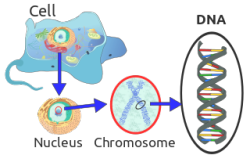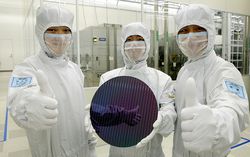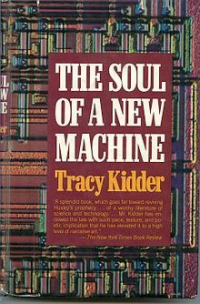
Technology will succeed. The future can’t be put back into the bottle. If it can’t succeed here, it will go elsewhere, leaving America to become just another Latin American dictatorship.
But there’s another wave following technology. Just as technology followed resources, resources followed manufacturing, and manufacturing followed utilities, railroads, and agriculture to the center of the U.S. economy, and thus its politics, so biology is following technology.

Looking back 40 years, the PC era was the product of enabling technology put in the hands of hobbyists, and an industry that welcomed the innovation as a matter of course.
The problem with today’s biology industry is that it is not nearly as welcoming as it needs to be to new entrants.
This starts with education and a liberal blind spot, the hatred of “genetic modification.” The two are related. Fear of Monsanto and the “green revolution” have caused a lot of smart people to reject biology as a career, and caused many educators to avoid it as a subject. The U.S. supply train of molecular biology experts is not nearly as wide as it needs to be.
There are niches that are drawing some seed money. Synthetic biology, the creation of custom microbes for manufacturing other products, is one such niche. Over $560 million went into the field last year, and another $900 million this year, most of it into a gene editing tool called CRISPR-Cas9, which uses an enzyme called Cas9 to cut DNA and guide RNA to get it into a DNA molecule. The analogy is to mechanical film editing, and this might indeed be the BASIC of the new technology, an initial building block that draws people and money into the field.

Scaling is the problem, because the “DNA chip” that might do the work of Intel in the previous generation doesn’t exist, and there is no desire to spread this knowledge to the general population, to let hobbyists get their hands on it. There is also no sense of urgency regarding the climate crisis. Denialists are in political control.
This is where today’s technology moguls, like Mark Zuckerberg, Larry Page and Bill Gates, come into the picture. Manufactures nurtured technologists back in the 1970s, and it’s time for technologists to nurture biology. Currently the moguls are focused on specific solutions to problems of cancer and aging. They don’t want to die. This is far too self-centered an approach. What we really need are general-purpose techniques for “hacking” DNA, and a generation of young hobbyists educated to use them.
Rather than focusing on specific causes, we need to focus on education, on getting an understanding of DNA science not just into college curricula, but into high schools and even elementary grades. The U.S. is getting killed in science and technology education, and building human capital has to be the first step in building a bigger biology industry.
Remember. Human capital is the capital that counts in the technology era. It’s just as vital in growing the technology era.
There are places where you and I can help. We need people who can separate valuable information from crap, and we need people to fight the crap. We need enthusiasm from young parents for biology, which means we need toys and games which teach young people the basics.
Schools alone won’t do it. We need software.

There are people working on these things. Daisy Ginsburg is working on it. My guess is there are hundreds of such people working in obscurity right now. The best journalists of our time should be focused on finding these people and bringing them to the attention of policy makers and funding sources. There’s a lot of work to do there, a lot of money to be made, even if there aren’t many readers.
The point today is there is a new world opening, a world of bioengineering made possible by clouds, devices, and mass science education, one which technologists need to do more to encourage and bring into the light.
Bill Gates, find me the next Bill Gates.









